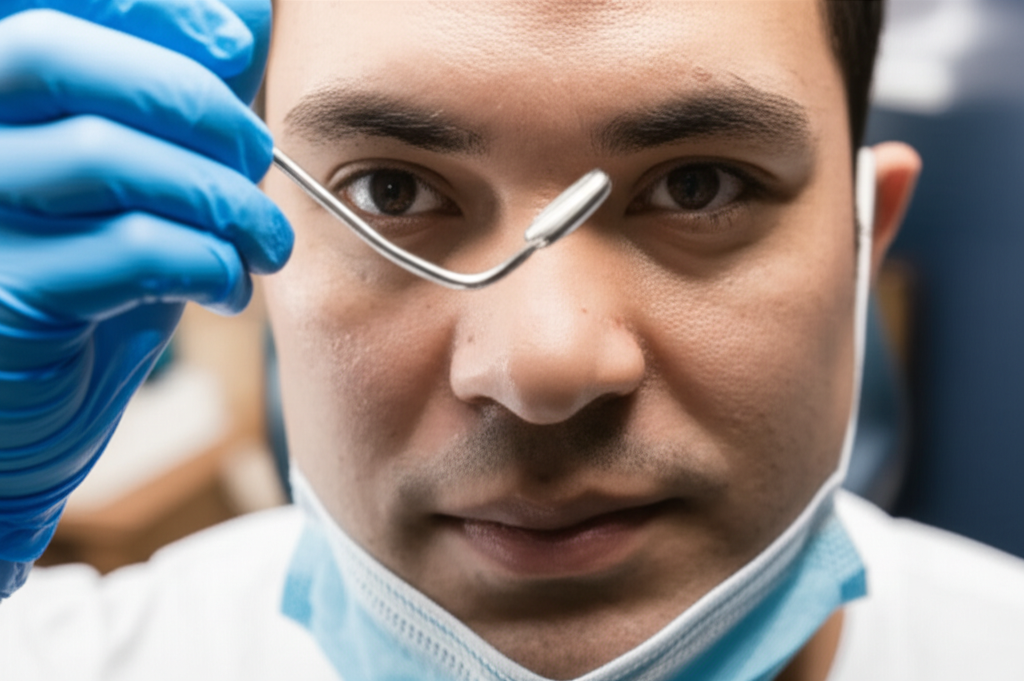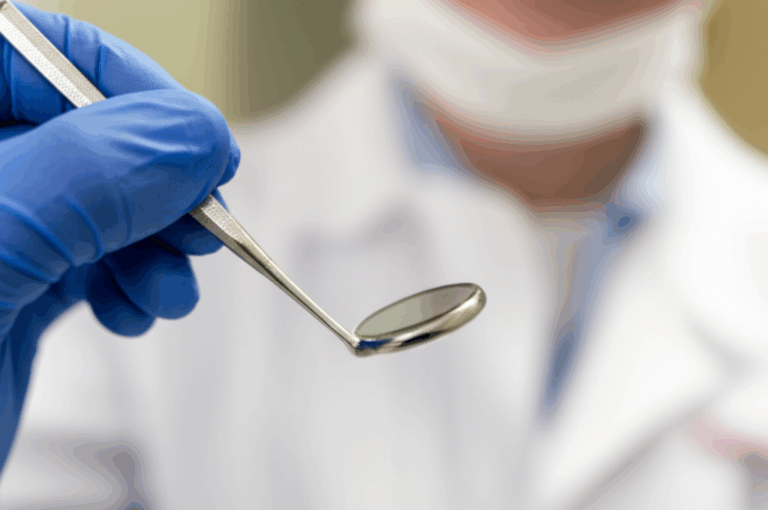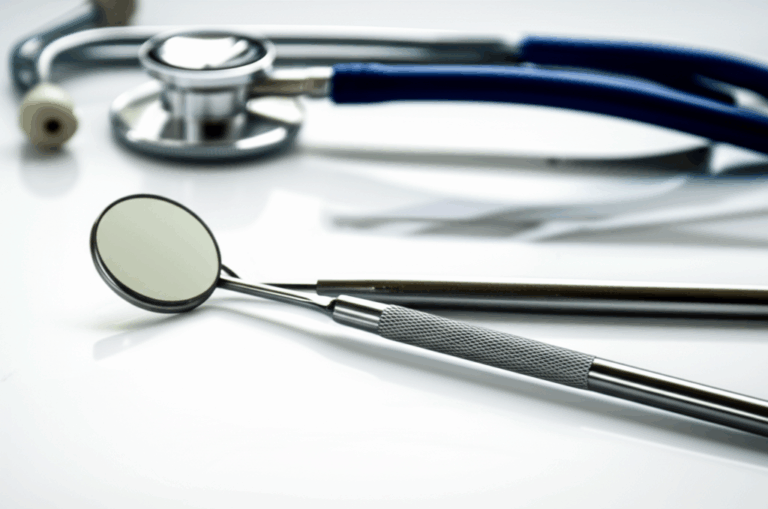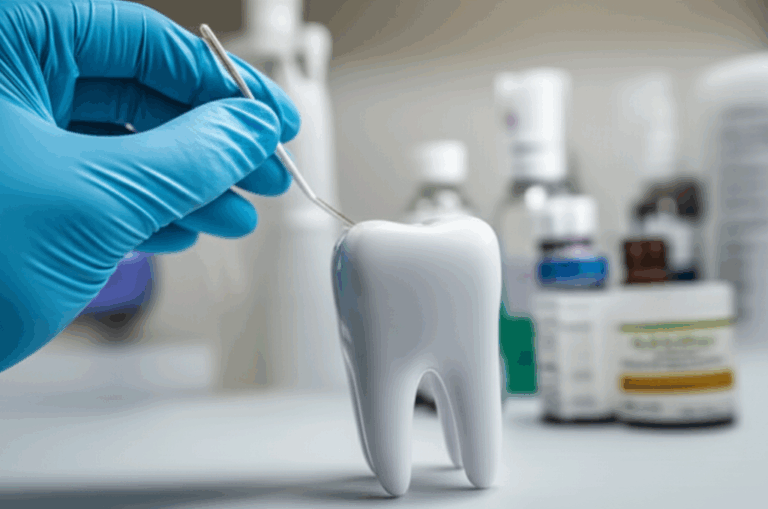
Is a Dentist a Type of Doctor? Unpacking the Dental Profession’s Medical Standing
If you’ve ever wondered, “Is a dentist a real doctor?” you’re in the right place. This article dives into what makes a dentist a doctor, why their role is important in healthcare, and how dentists stack up next to other medical professionals. You’ll find out what dentists do, how much training they get, and why your oral health is a big part of your overall health. After reading, you’ll never see a trip to the dentist the same way!
Table of Contents
The Big Question: Are Dentists Doctors?
I know you’re wondering—is a dentist a doctor or not? The easy answer is yes, dentists are doctors. Let’s talk about why. When you go see your dentist, you’re seeing someone who’s finished lots of tough school and training, passed hard tests, and can figure out and treat lots of health problems. Just like medical doctors (MD) or doctors of osteopathy (DO), dentists get a doctorate degree. Their degree is called either DDS (Doctor of Dental Surgery) or DMD (Doctor of Dental Medicine). No matter which one, both are real doctors. They focus on your mouth, teeth, gums, and all the things that keep your smile looking good and healthy.
What Makes Someone a Doctor?
When you hear “doctor,” you might think of someone with a stethoscope and a white coat, but the truth is wider. A doctor is anyone who has done extra years of school and training in a medical field, passed tough tests, and has a license to take care of people. It’s not just about the name—it’s about what they do.
- Education: Dentists spend about eight years in school after high school. That’s four years to get a college degree (with lots of science like biology and chemistry) and four more years at dental school.
- Degree: After dental school, they get a DDS or DMD.
- Licensing: Dentists need to pass the National Board Dental Examinations and other tests to get their license.
- Scope of Practice: Dentists can find out what’s wrong, give medicine, and even do surgery inside your mouth.
So, if you ask, “Is a dentist a doctor?” the answer is without a doubt, yes!
How Do Dentists Get Their Degrees?
Becoming a dentist isn’t easy. It’s kind of like climbing a really tall hill—one step at a time.
- Dentists start by getting a college degree. Most pick majors like biology or chemistry.
- They take the Dental Admission Test (DAT)—it’s like an entrance test.
- Once they get in, they go to dental school for four years.
- They learn about the body, teeth, surgery, medicines, and more.
- They practice on real and fake teeth.
- Even after all that, they have to PASS hard tests—the National Board Dental Examinations.
- Some do even more training, like learning about surgery, braces, or making replacements for lost teeth at places like a prosthodontics lab.
Here’s a small table to show you the steps side by side with a medical doctor.
| Step | Dentist (DDS/DMD) | Medical Doctor (MD/DO) |
|---|---|---|
| College | 4 years (lots of science) | 4 years (lots of science) |
| Entrance Exam | DAT | MCAT |
| Professional School | 4 years of dental school | 4 years of medical school |
| License Test | National Board Dental | USMLE/COMLEX |
| Optional Residency | 1-6 years (specialty) | 3-7 years (specialty) |
So, you see—they are both “doctors” in the real way!
DDS vs. DMD: What Do Those Letters Mean?
You might see your dentist has a different degree than someone else. Maybe you see “Dr. Smith, DDS” and “Dr. Brown, DMD.” Is one better? The truth is: They are EXACTLY the same.
- DDS stands for Doctor of Dental Surgery.
- DMD stands for Doctor of Dental Medicine.
There’s no difference in what they learn or what they can do. It’s just down to the school they went to. Harvard, for example, wanted their degree to be in Latin, so they picked DMD. The American Dental Association (ADA) says both degrees are equal.
What Do Dentists Actually Do?
Dentists don’t just fix teeth. Their training covers everything in your mouth—teeth, gums, jaw, even some parts of your head and neck.
Here’s what dentists do:
- Find and Treat Mouth Problems: Dentists can notice things like cavities, gum disease, infections, and even mouth cancer. They help with jaw pain, too.
- Surgery and Repair: Dentists do fillings, crowns, bridges, root canals, and sometimes pull teeth. For harder surgeries, you may see a specialist—but the training starts as a general dental doctor.
- Give Medicine: Dentists can give you antibiotics, pain meds, and other drugs.
- Prevention: Dentists teach you how to care for your teeth, give fluoride treatments, and make mouth guards for sports.
- Cosmetic Work: Things like teeth whitening, caps, or braces start with a dentist’s advice.
Even specialists—like people who do braces, work on gums, or do surgery—start out as dentists first before they go back for more school.
How Does Your Mouth Affect the Rest of Your Body?
Here’s something you might not know: What happens in your mouth doesn’t just stay in your mouth! There’s a strong connection between mouth health and the rest of your body. This is called the “oral-systemic link.”
Examples:
- People with gum disease are more likely to have heart trouble.
- Out-of-control diabetes can show up as gum infections or dry mouth.
- Pregnant women with bad mouth health can have babies too early or too small.
Dentists look out for signs that could mean something bigger is wrong. Sometimes your dentist is the first doctor to spot problems like mouth cancer or signs of other illness.
A good dentist will tell you if they think you need to see your regular doctor for more tests. Dentists and other doctors are part of a team. That’s real teamwork!
Dentists vs. Physicians: What’s the Difference?
Dentists and medical doctors are both doctors. They just focus on different parts.
| Dentist | Physician |
|---|---|
| Focus on mouth, teeth, gums, jaw | Focus on whole body and organs |
| Learn surgery and dental care | Learn about many kinds of health |
| Can prescribe drugs for mouth problems | Prescribe drugs for all over |
| Go to dental school (DDS/DMD) | Go to medical school (MD/DO) |
| License from Dental Board | License from Medical Board |
The training takes about the same time (often more than eight years), but they study different things deeply. Dentists become “doctors of the mouth,” and physicians become “doctors for the body.” And remember, your mouth is part of your body, too!
How Do Dentists and Doctors Work Together?
No one works alone in health care. The best care happens when everyone works together. Dentists and doctors often talk about hard cases. For example:
- If a dentist sees something that looks like cancer, they send the person to a medical doctor.
- A doctor may send a patient to a dentist for help with jaw pain or sleep problems.
- Surgeons and doctors work together for big face or neck surgeries.
Some dental specialists, like oral and maxillofacial surgeons, even get both dental and medical degrees!
The American Dental Association (ADA) and the World Health Organization (WHO) both remind us: mouth and general health are linked.
Why Are Dentists Important in Healthcare?
Imagine not seeing a dentist for years. Cavities turn into toothaches. Infections can spread from your gums to your heart. Early signs of cancer can go unnoticed. See the problem? Dentists find small problems before they become really big.
Dentists are often the first to:
- Find mouth cancer.
- Notice signs of diabetes or poor nutrition.
- Help with pain that makes it hard to eat or sleep.
- Teach kids and adults to clean their teeth for a healthy smile.
Dentists also make a promise to always do what’s best for you, kind of like the doctor’s Hippocratic Oath. This means people like Dr. Joe Dental always put your health first. They keep learning new things so they give the best care—no matter where you live.
And when it comes to all your dental tools and treatments, places like a digital dental lab or a top china dental lab help your dentist make crowns, bridges, retainers, or dentures that fit just right!
Questions about Dentists — Answered!
Q: Can a dentist give medicine, like antibiotics or painkillers?
A: Yes! Dentists can write prescriptions for things related to your mouth, like antibiotics or pain medicine after treatment.
Q: Do dentists go to medical school?
A: Dental school is as tough as medical school, but it’s about the mouth, jaws, face, and neck. Some dental specialists do both dental and medical school!
Q: Are there different kinds of dentists?
A: Yes! After being a dentist, some go back to school to become specialists. Here are a few:
- Orthodontist: Makes teeth straight with braces.
- Oral Surgeon: Does surgery in the mouth and jaw.
- Pediatric Dentist: Helps children.
- Periodontist: Works with gums and bone.
Q: Why do dentists need labs?
A: Dentists often work with ceramic dental labs to make crowns and bridges, or implant dental labs for implants. Labs use high-tech tools to make sure every piece fits right. It’s all about teamwork!
Key Points to Remember
- Dentists are doctors, with lots of school, hard tests, and a license.
- They get a DDS or DMD degree, and both mean the same thing.
- Dentists find, treat, and prevent mouth problems. They can give medicine and do surgery.
- The health of your mouth affects your whole body.
- Dentists and doctors work as a team. Both are needed for good health.
- Dental labs help make sure your dental work fits and works well.
- Seeing a dentist is just as important as seeing any doctor—because your smile and your health are both important.
Remember: A dentist does more than fix teeth—they’re a real doctor, a partner for your health, and often the first to find problems before they get big. So, take care of your teeth, see your dentist, and give your smile the attention it needs!
This article has been reviewed by Dr. Joe Dental, DDS, to make sure the facts are right and helpful for readers like you.








